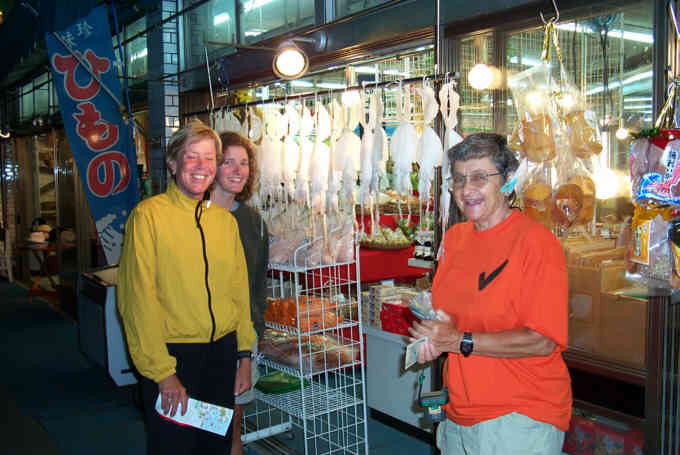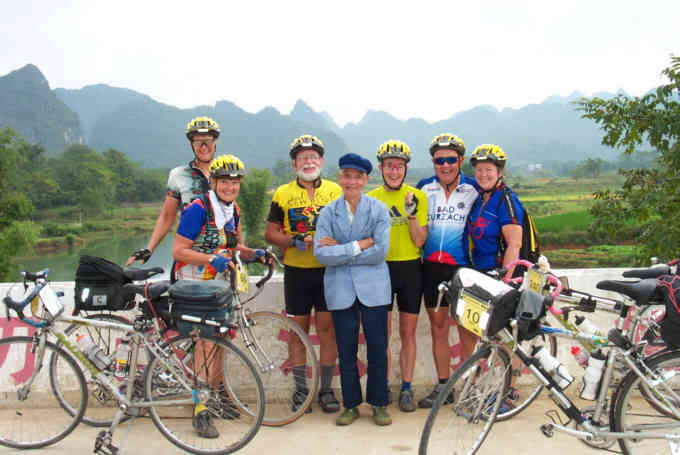

Page 86
China 
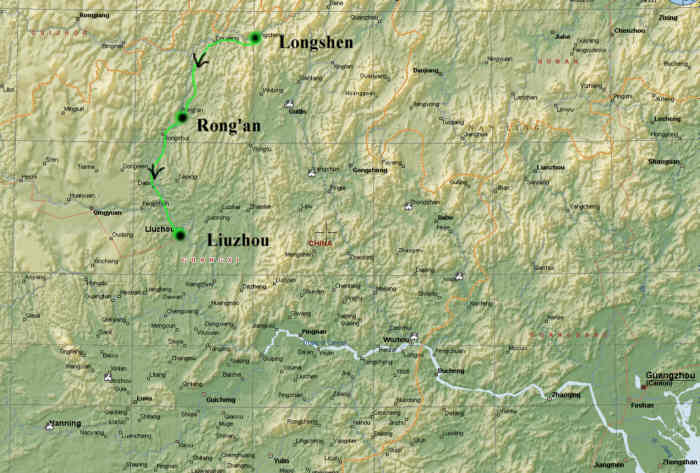
DAY
298
Longshen to Rong'an (Chang'an)
October
24, 2000
I suppose tension was running high, everyone preoccupied with the what-to-do-about-the-end-of-Odyssey problem, I know I was and even dreamed about it. Everyone seemed less patient and tolerant of each other as we scurried around getting ready to ride after our layover day. We stood in line for water that is being provided in Asia by TK&A, and I stood in line for the mechanic because my front wheel wouldn’t spin and my brakes were poor. We have two mechanics but they take turns working so the line always tends to be long. It was long this time too and moving very slowly, so after a 20-minute wait without progressing, I gave up and left. Instead I would hope to get it fixed at Checkpoint 73 km. away where maybe the line would be shorter.
Cammy and Larry were planning to race to the day’s end 133 km. away. Their preparations and good-natured deprecations of each other and of the which-sex-is-better issue kept us entertained and diverted us from the what-to-do problem. They posed for photos just like racing stars everywhere. They had been training and had had ‘coaches’ advising them. The excitement about the race had been building for days.
Joan and I are not racers and rode off at our usual deliberate pace. It wasn’t raining but it had been, so the road was wet in places. There were also many blind curves where one could not see approaching vehicles and the much-patched road was bumpy and narrow. Someone observed later that perhaps it was the combination of stress over the what-to-do problem and the road conditions combined that caused the accidents. Before long we came upon two riders down, both on the same slippery corner, but separate accidents. One was Cammy who suffered a gash on her forearm, ending the race for her for that day. We stopped to see whether we could help and to sympathize. But she was in good hands; two of our riders who are doctors were on the scene and helping her. Plucky Cammy was not worrying about herself but regretting that she had disappointed all of her fans by falling and thus losing the race. Priscilla was the other rider down, but it wasn’t long before she was back on her bike, having suffered just a little road rash on her nose, elbow, and knee when she fell. Later she discovered that her helmet was cracked, another happy rider saved from serious injury by a helmet. Cammy needed stitches but fortunately we now have a doctor on the staff traveling with us. Two days later Cammy was riding again.
A third accident happened when a rider fell and then was hit by a motorcycle, but he too was lucky, suffering only a skinned elbow. The fourth accident occurred on a bridge when a rider hit a pedestrian that he hadn’t seen; easy to do here where it is a free for all on the roads. Both were skinned and bleeding. Other riders patched their wounds, but the injured Chinese man was angry and a crowd of interested onlookers had gathered. Eventually one of the TK&A vans with an interpreter on board arrived and arranged a settlement. The rider gave the injured man the 100-yuan he wanted and I’m sure he was relieved to do so. That ended the incident and the man went away with a bandage on his knee. Our new doctor stitched the rider’s lip and luckily he suffered no serious injury. Four accidents before noon! I resolved to ride with even more caution.
We rode through two wood inspection checkpoints that day but there were no loads of lumber being inspected. We did see people at work in mills and were curious about their unusual products but could only wonder since there was no one we could ask to explain. Perhaps the most curious were the short logs being peeled. Machinery peeled the logs and the resulting skinnier logs were stacked for another use or process. The thin layers of wood or peeling removed from the logs were laid out in the ditches and rice paddies. We could not decide whether that was done to dry the wood or just the opposite. The thin sheets of wood were buckled and rough. I wondered what their use could be. Although rice paddies dominated there were forested areas, especially on the hillsides, and the homes were built of wood.
There was another unusual sight, and that was horses! There were no water buffalo, those apparently replaced by horses. Maybe that was because we were away from the river and the area was somewhat drier than buffalo prefer.
We stopped for lunch at 57 km. where we saw other riders gathered. There was a store there and a picnic table and benches made of bricks or blocks covered with white ceramic tiles. (Many of the new homes and many major buildings are finished with white ceramic tiles. The windows are almost always of blue glass.) Every rider eating there had a similar lunch, good old peanut butter and whatever Chinese cracker or cookie he could find to eat with it. One never knows what is going to be inside a packet of cookies or crackers. Many are not to our taste at all. Some of these packets were discarded, left by riders who had eaten there earlier. I contributed a package of cookies that I found disappointing.
At 73 km. we reached Checkpoint which was at a summit, to be followed by a descent which the DRG cautioned would be ‘fast, curvy and rough’. Only one person was ahead of me in line for the mechanic so I was able to have my front wheel trued and the brakes adjusted.
In the afternoon the roads dried and seemed less treacherous, there was lots of climbing and fast, curvy descents and I was grateful for my newly adjusted brakes. Before long because of the hills I had left Joan behind. Not only was it hilly but hot and humid, making the going harder. I thought I would stop when I reached 100 km. and wait for her. I did but she didn’t appear. I rode the rest of the way without her, reaching Rong’an only 30 minutes before she did.
Rong’an is not yet an attractive city. The new streets are wide but dusty, construction is happening everywhere, and there are heaps of rubble and rubbish. I was assigned to the Lou Fang Hotel, which was only around the corner from the main hotel, a short walk away. I pulled my wheeled bag the short distance through the mud and rubble rather than wait for it to be delivered. That was the easy part, my room was on the fifth floor and there was no elevator! But two young Chinese women working there carried my bag for me, thank heavens.
Ruth was already there, showered and settled. Our room was very nice, much more so than we had dared hope. We had a ceramic tile floor, still wet from the mopping, a shower with hot water, and wide comfortable beds covered with clean white bedding and a pillow in a ruffled sham. It was only minutes until dinnertime, so I had to postpone my shower and settle for a quicker splash in the sink. It was tempting just to stay put and skip dinner, eating more peanut butter and cookies instead. But thank goodness I didn’t! The dinner was served back at the main hotel, the Gin Di Hotel, and it was delicious. We were all astounded and enjoyed every morsel. Each dish seemed more wonderful than the last and none were greasy and bony. One dish easy to describe was steamed bright green broccoli topped with plenty of big, golden, crisp, roasted cashews.
Goodbye,
Alice
DAY
299
Chang'an to Liuzhou
October
25, 2000
We had to traverse a 53 km. stretch of road construction immediately on leaving Chang’an. TK&A had decided to bus us ‘to avoid some extremely dusty, slippery and frustrating construction’ as that stretch of road was described on the DRG. Now most of us were pleased by that, we’d had an 80 mile ride in hot, humid weather the day before, so cutting some of the distance would be fine with us. The EFI’s on the other hand, plus a few others were determined to ride no matter what the conditions. There was quite a group including at least these riders: Ruth, Jim Higbee, Bill Bliss, Wild Bill, Susie, Bill G., Dan O., Danny, Bobbi, Big Rod, Randall, Ken, Mark, Arnie, Charlie and True who came in first of course. They were well on their way while we were still at the hotel loading the bikes onto trucks and ourselves into busses. Then the fun began. That road, some sections worse than others, was thick gooey mud, deep ruts, and slippery, splashy mud. Yet all the usual traffic was out there, busses, trucks, bicycles, even water buffalo. The buffalo moved with ease but the rest of us inched along. Some trucks were stuck in the mud, buried to the axles, and later I learned that one of our busses had had to be pulled from the mud. We reached some of our riders eventually and watched them struggle in the mud. In the deepest parts they had to dismount and carry their bicycles. Later they told of having to remove fenders and of stopping to remove the mud build-up where the brakes meet the wheels so that the wheels could turn. High and dry in our busses we wondered at them and half expected some to plead for a lift. One couple that started in the mud did change their minds and take a ride, but I believe all the others saw it through. It looked like fun actually to me, in a hard work sort of a way. I think I would have been out there too had I been strong enough to do it. Later when I asked some of them about it, they said it was fun and they all enjoyed it, a very memorable day.
While driving through some of the villages our bus gained a few passengers. Just why these people climbed onto our bus and stayed there we don’t know. Maybe the mud had delayed the busses they expected. Our hostess managed to eject the first two but before long more climbed aboard and these people stayed put. We thought it was as funny as could be and I wondered what our Chinese guests thought when they found themselves in a bus filled with foreigners. So when a short distance after regaining solid ground our bus stopped, we thought it was to eject our uninvited guests. The driver said something but no one moved. Finally with a bit of shouting and gesturing the driver managed to convey that we were the ones being ejected. How strange! Here we were in what appeared to be the middle of nowhere and we had to disembark! So we did and there we waited by the side of the road, wondering what next. It was nearly noon, the 53 km. of mud had taken three hours to traverse. Some people including me ate some lunch, peanut butter and cookies of course, and tried to wait patiently in the heat and the dirt. Before long another bus arrived and then the trucks full of bikes. That made us happy; with wheels we would no longer feel stranded. But the poor bikes. They had taken such a jostling that they were entangled and it was a slow job separating and unloading them. They were so dusty as to be almost unrecognizable. How could there be so much dust when it seemed like we had been in mud all morning? I dusted my handlebars and seat and loaded my bike bags. Nothing on my bike was broken or missing. Ready to roll at last, Joan and I set out, an easy day with only 60 km. left to ride.
There were no more wooden houses. Now they were of brick. Some were of mud brick, plastered with more mud; at least it appeared to be mud because it was the color of mud with many cracks. Some homes were made of bricks stacked on each other without mortar or plaster, and we wondered what held those houses together. Newer homes still under construction were of brick, often covered with white ceramic tiles. Everywhere in the countryside there were rice paddies and vegetable gardens with people at work in them. But in the villages we often saw idle people. Young men were just sitting, watching the world go by. Older men were more likely to be playing games with tiles and cards, long narrow cards reminding me of the shape of tongue depressors. Fewer women seem to have time to spare, but they can be seen playing the same tile and card games, and knitting. Every woman in China appears to be making a sweater. Whenever or wherever she sits to rest she is knitting.
The villages of China that we have seen are extremely busy, interesting places, but the main streets that we ride when cycling through a town are not attractive. The streets themselves are full of potholes, bumps, big rocks, mud puddles, manure, and discarded or dropped straw and other plant parts. Filling the streets are every manner of conveyance including bicycles, bicycle powered buggies and carts, hand pulled two-wheel carts, rototiller-like farm wagons, big diesel trucks, busses, scooters, motorcycles, and occasionally a big expensive automobile, definitely out of place and just passing through. Also in the street are pedestrians, shoppers, children, cattle, dogs and chickens. Of these the only ones with enough sense to get out of harm’s way are the chickens. Alongside the streets are every kind of business and enterprise. There are shops in buildings and there are market stalls in the space between the street and the buildings. In these stalls fresh food is for sale including meat, fish, fruit and vegetables. In the shops are sold the necessary items for housekeeping like laundry soap, toilet paper, plastic items, canned and dried foods, tea, sugar, candy and cookies. There are very seldom any refrigerated or frozen foods. There are many small businesses that sell only sodas and a few packaged snack foods, and many small portable restaurants where one can have a whole meal right on the spot, or have the food put into containers to take away. There are so many of these small restaurants that I get the impression few people are cooking at home. These places are open only for a couple of hours at each mealtime. There is often no table or place to sit, or at best some little stools. The dishes are washed between customers in dishpans right on the ground. Many shops are for engine repair or for tire repair, some seem to be to collect scrap metal, others discarded plastic. People doing shoe repair have portable stalls, and one can have a shampoo and head massage on the street as well. Adding to this clutter and confusion, the obnoxious odors and black diesel exhaust, are the major projects in progress. Buildings are being demolished so there are heaps of rubble. New buildings going up create their own heaps of rubble. Big ditches have been dug and pipes are stacked waiting to be put into place. Shoppers and merchants, dogs and children, have to pick their way carefully through all the rubble to get to the shops, stalls and to homes. In a word, it is a mess. It looks just like other developing countries I have seen. It seems like there is such a mess that it can never all be cleaned up, but I think it will eventually. I saw it happen during my years in Saudi Arabia. I am sorry the people have to live in rubble, dust and confusion, but I am pleased to be here and see it happening. I think these are exciting times for the Chinese.
Goodbye, Alice
Today's Music
Ai Qing Fen Lie by Vivan Chow
China 
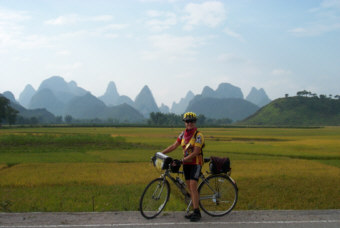
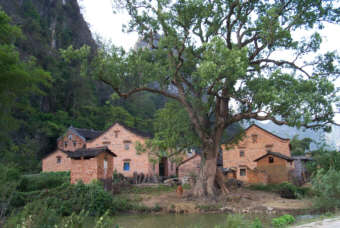
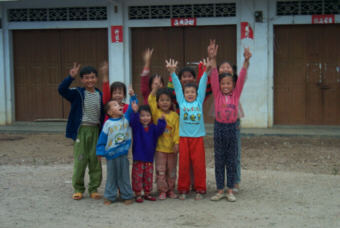
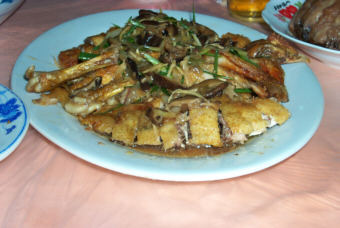
Japan 
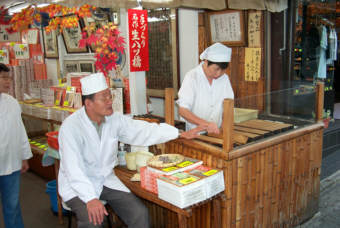
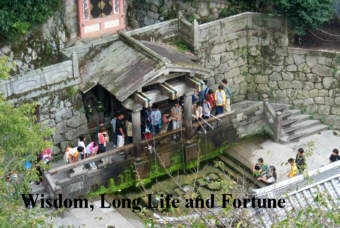
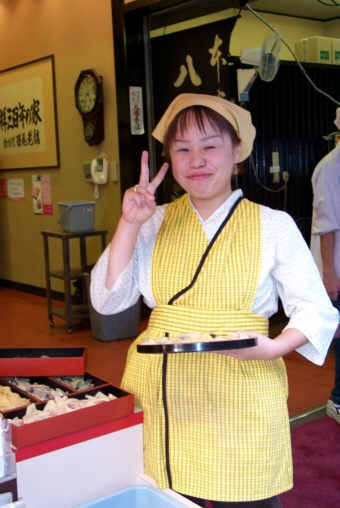
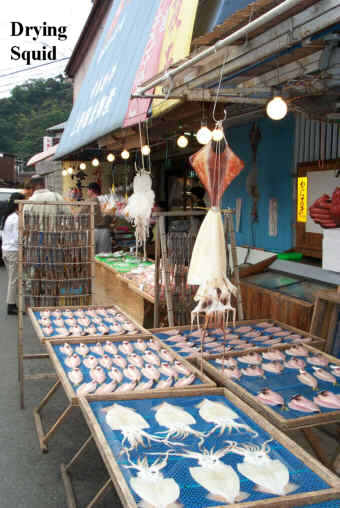
 Odyssey Riders and Staff
Odyssey Riders and Staff
